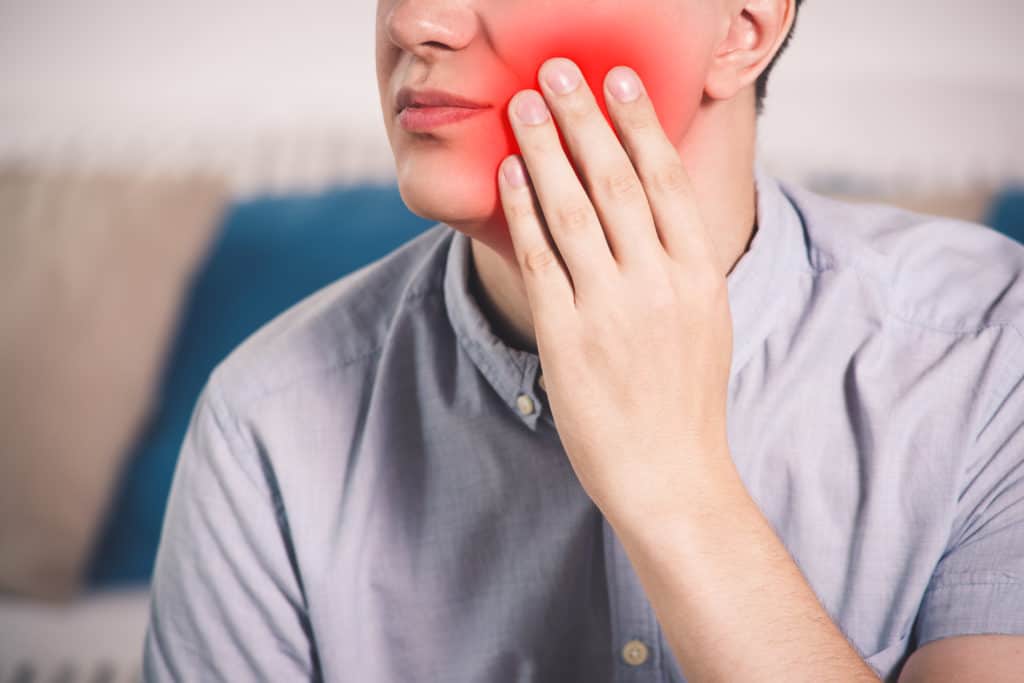Getting your wisdom teeth removed is not a pleasant experience, but it is much better than living your whole life with a crowded jaw or impacted teeth. The procedure is common and low-risk, but most people experience temporary numbness, soreness, or tiredness.
In this article, we’re going to reveal some things you can do to ease the post-surgical discomfort, including tips on how to get the sleep needed for recovery.

How long does it take to recover?
First of all, when you’re fresh out of surgery, the first thought on your mind is probably how long you will have to endure the uncomfortable swelling and visible bruising on your face. Recovery time will be different for everyone. The good news is that most people fully bounce back from the extraction in just three to four days. By that time, the swelling of the mouth and cheeks should settle down. If your teeth were impacted, it could take a whole week for all the stiffness, soreness, and bleeding to go away.
Bear in mind that the wound doesn’t completely heal for months, so there is a slight possibility of infection even after the recovery period. Seek help if you experience any of these symptoms: trouble swallowing or breathing, fever, blood coming out of your nose.
What is the best thing to do after getting your wisdom teeth out?
After your wisdom teeth removal, it’s advised that you pay attention to your oral surgeon’s aftercare instructions for the best chance at full speed recovery. Follow these guidelines:
-
- Bite down gently on a gauze pad – Your dentist may ask you to bite down on a gauze pad to stop the bleeding. Do it gently, though, so as not to reopen the wound. You can keep the gauze pad anywhere from 30 minutes to 4 hours.
- Take medications your doctor prescribed – This is essential. First, it will help fight off potential infection, and second, it will help you sleep at night if you’re experiencing pain. Ibuprofen or Tylenol can help with the discomfort too.
- Apply ice packs – You can apply an ice pack on the swollen area if you are experiencing swelling and pain, as it will reduce the soreness. You should keep the pack for a shorter nap, but it is not recommended to use it for long rest.
- Stick to soft foods – You want to go easy on your mouth. Plan on eating soft foods – smoothies, ice cream, cold soups – and stay away from coffee, soda, or hot beverages in the first few days after your surgery.
- Restrict your activities to a bare minimum – In most cases, you can resume normal activities after the first day, but it would be best to wait about a week. You don’t want to do anything that could dislodge the blood clot from the removal site.
- Make sure you maintain a clean mouth – It’s essential to know how to keep your operational site clean and safe from any infections. When you first start brushing your teeth (preferably day two after the surgery), you’ll have to be very gentle to keep the blood clot from becoming dislodged. You may get a special rinse, or you may be advised to use saltwater. Rinsing with one of these a few times a day helps with the healing process.
What shouldn’t you do after wisdom teeth removal?
First things first, no alcohol. Alcohol kills “the good” bacteria in your mouth while allowing the bad ones to remain. With more bad bacteria in your mouth, your surgical wound is at a higher risk of infections. Restrain from drinking alcohol for at least 48 hours and, if possible, for even a week until you healed adequately.
As discussed earlier, soft foods will be your meals of choice, so it only comes as natural that you avoid eating hard, crunchy foods and sugary snacks. Sugar is a common ground for bacteria to feast, and you want to avoid this as it will speed up the formation of plaque, and your wound may get infected at some point.
Everybody is aware by now, cigarettes are harmful to your health. With that said, after you have had your wisdom teeth removed, you should avoid smoking for at least 48 hours or the whole time of your recovery. Tobacco can cause infections to the wound because you are prone to irritating your gums and catching gum diseases along the way with insufficient saliva.
Your best bet to a quicker recovery will be to refrain from using straws and to avoid spitting all together. This is important because of the higher risk of creating the dry socket. So, stay hydrated, but no straws.
How much should I sleep after wisdom teeth surgery?
It may be harder to doze off when you’re experiencing pain and discomfort, as with any medical procedure. With wisdom tooth extraction, it’ll be most difficult in the first 2-3 nights, but by making minor adjustments to your regular sleeping routine, you’re sure to get enough sleeping hours and recover faster.
Sleep on your back – Sleeping on the side of the extraction area can cause accidental bleeding, pain, and injuries from the pressure of your body weight. So it’s best if you sleep on your back to minimize the risks. Depending on your recovery time, you’ll need to sleep on your back for around three to seven days. If you’re somebody who isn’t used to sleeping on their back, try arranging pillows around your head and neck to keep you comfortable and supported. Avoid laying on your side, as this can lead to more swelling on the side of your face on the pillow.
Keep your head elevated – After wisdom teeth extraction, your best ally will be your pillow for the first few nights. Keeping your head elevated will reduce swelling and bleeding while piling a few pillows behind you will provide you with enough additional support. Sleep with your head elevated for at least 72 hours or until the bleeding has stopped.
Don’t forget to take all the gauze out of your mouth before you fall asleep – Leaving the gauze in your mouth is extremely dangerous and can be a choking hazard, so always remember to take it out before you drift away.
Invest in a temporary bed setup: for post-extraction sleep, you should consider investing in a mattress topper, weighted blanket, or other useful accessories. Toppers are great simple solutions to provide you with added support without the need to replace your entire mattress. Weighted blankets provide a soothing calm to accommodate your post-procedure sleep requirements. The best thing is the blankets are available in several weights so you get to choose the best one for your needs.

Final Thoughts
Getting your wisdom teeth out has become a very standard medical procedure. Recovery can range anywhere from three days to a week, during which you must follow all the instructions given by your dentist. Just follow these easy-to-do steps at home, and the do’s and don’ts we’ve provided, and you’ll recover like a champ in no time. It may be uncomfortable, but get your sleep!

